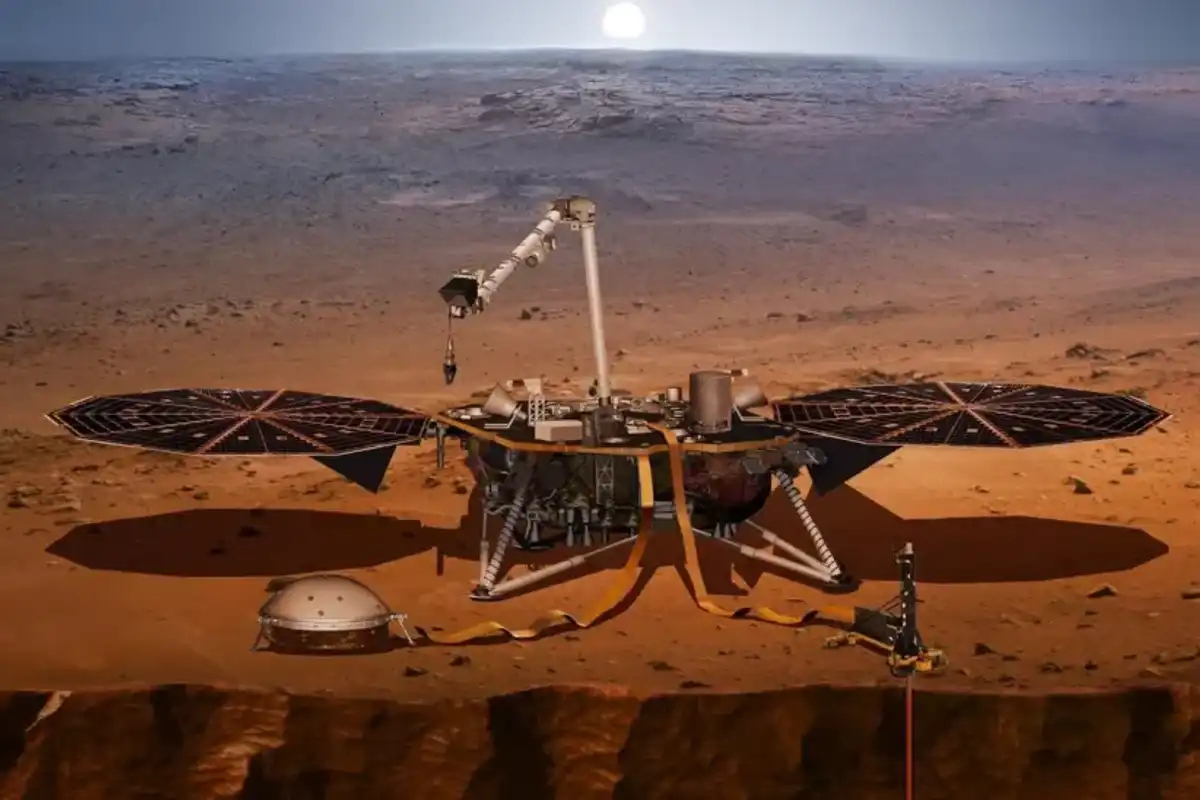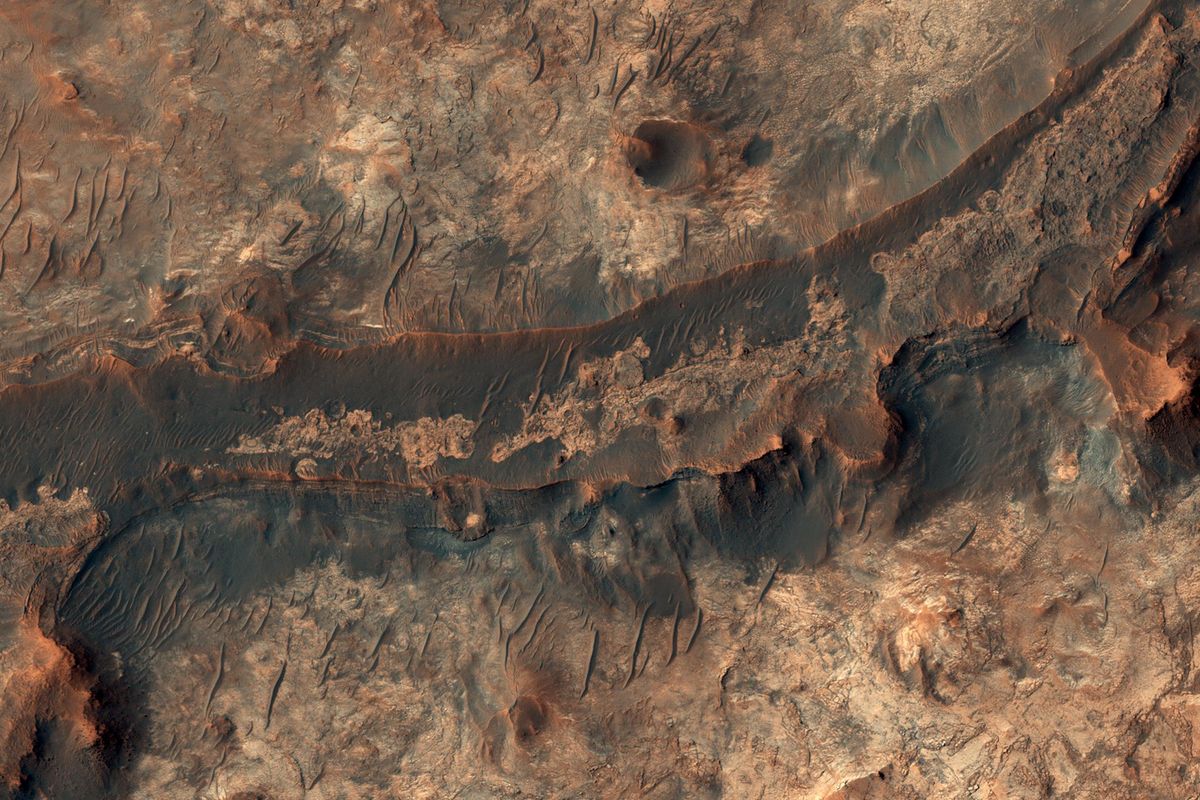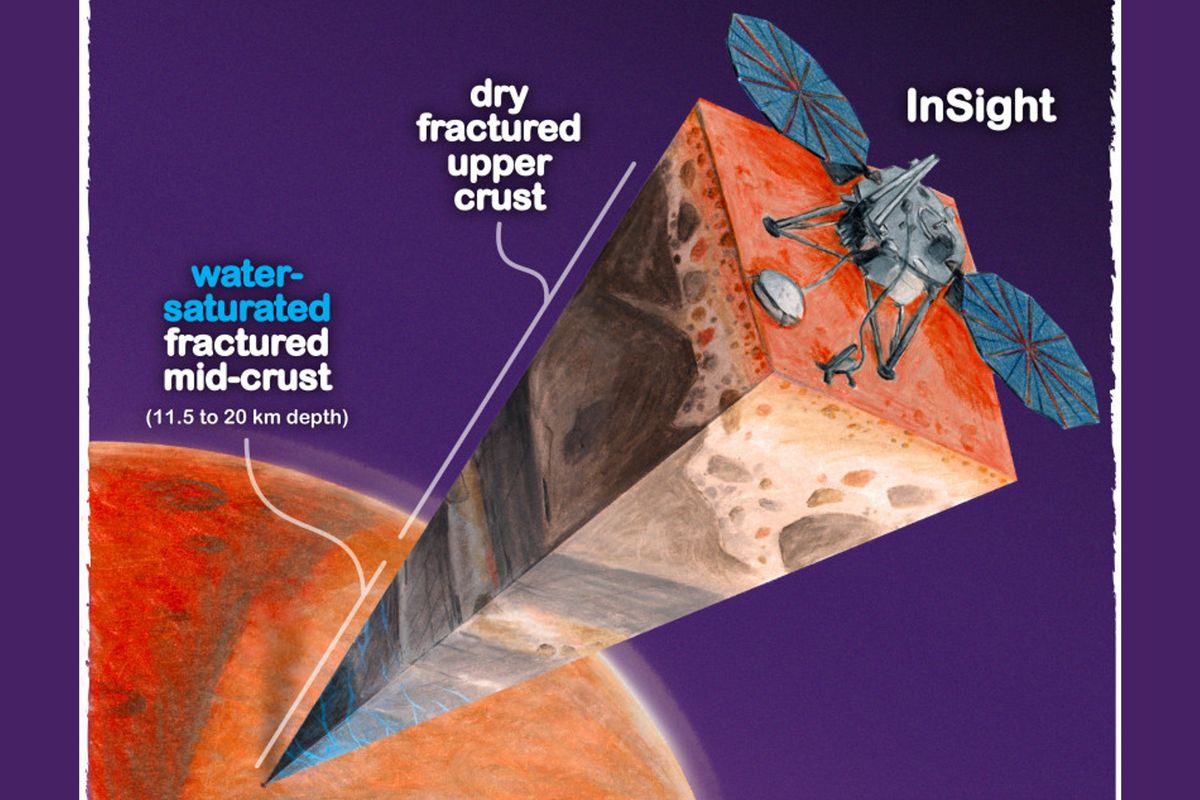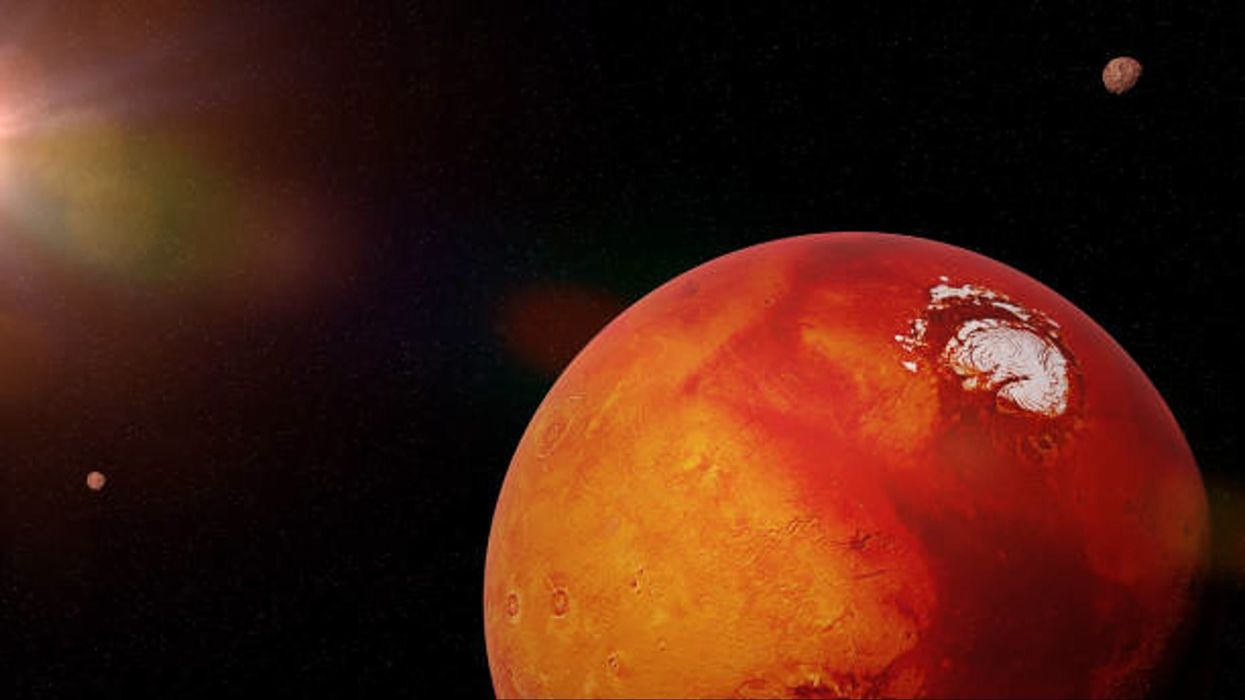Liquid water has been found for the first time on Mars in what could be the precursor to discovering life on the Red Planet.
Experts have long known of the presence of frozen water at the Martian poles, and have detected evidence of vapour in the atmosphere, but they’d never been able to establish the existence of vast, fluid oceans until now.
The groundbreaking discovery of massive underground reservoirs was made thanks to data collected by NASA’s Mars InSight Lander, which landed on the planet back in 2018.
The lander was equipped with a seismometer, which recorded four years' worth of vibrations (also known as Mars quakes) from deep within the Martian outer crust.
By analysing the quakes and movement of the planets, scientists uncovered "seismic signals" of liquid water.
The issue they now face is that this water is so deep underground, they can’t actually reach it.

These reservoirs lie some 10 to 20 kilometres (six to 12 miles) beneath Mars’s rocky crust and we simply can’t dig down that deep on another world.
Yet, learning more about these extensive underground pools is key to furthering our knowledge of the Red Planet itself.
“Understanding the Martian water cycle is critical for understanding the evolution of the climate, surface and interior,” lead researcher Dr Vashan Wright, of UC San Diego’s Scripps Institution of Oceanography, said in a statement.
Meanwhile his colleague, Prof Michael Manga, of the University of California, Berkeley, added that water was "the most important molecule in shaping the evolution of a planet".
Studies of the surface of Mars, with its network of channels and ripples, show that the planet was once home to rivers and lakes.
And yet, for three billion years, it has been a desert which, as Prof Manga puts it, begs the question: "Where did all the Martian water go?"
Some of it was lost to space when Mars lost its atmosphere. However, as Prof Manga also pointed out: “Much of our water [here on Earth] is underground and there's no reason for that not to be the case on Mars too".

The InSight probe, which ceased operations in December 2022, was only able to record vibrations from the crust directly beneath its feet.
Nevertheless, the experts believe that there must be similar liquid water oceans lurking underground across the planet.
If this is indeed the case, they estimate that there is enough liquid water on Mars to form a layer across the surface more than half a mile (just over 800 metres) deep.
Still, they stress, anyone now dreaming of tapping into those huge reservoirs, as part of Mars colonisation plans, has their work cut out for them.

"[The water] is sequestered 10 to 20 kilometres deep in the crust," Prof Manga told BBC News.
"Drilling a hole 10km deep on Mars - even for [Elon] Musk - would be difficult," he added.
Yet, even more exciting than the prospect of eventually harvesting or harnessing that water is the potential for what it might contain: evidence of life.
"Without liquid water, you don't have life," Prof Manga explained.
“So if there are habitable environments on Mars, those may be now deep underground."
Sign up for our free Indy100 weekly newsletter
How to join the indy100's free WhatsApp channel
Have your say in our news democracy. Click the upvote icon at the top of the page to help raise this article through the indy100 rankings














